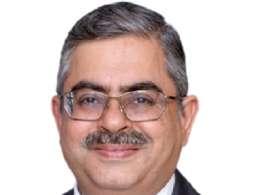The Securities and Exchange Board of India (Sebi) will no longer be headed by a chairman but a chairperson for the next three years. This may appear as a small tweak in designation but speaks volumes of how far India has come in gender representation at key regulatory bodies and the road that is still left to travel.
Madhabi Puri Buch, as the tenth chief of the market regulator is the first woman and first one from the private sector to head the institution. None of the other regulatory bodies such as the Reserve Bank of India or insurance regulator have had women as head of the institution.
“Glass ceiling breaking whether it is in the private sector or public sector is always fantastic. Having someone from the private sector heading a regulatory body is another good step. Financial services in India have fared better on gender diversity and women representation as compared to other sectors and when compared to global counterparts,” said Radhika Gupta, CEO, Edelweiss Asset Management Company.
Shruti Rajan, partner, Trilegal says Buch’s appointment is a classic example of how one step can be a giant leap.
“She will perhaps be the first woman at the helm of a key Indian financial regulator and that’s an extraordinary feat. It is a heartening change in an industry where we’re seeing more women leaders on the rise, said Rajan.
She will be taking over from Ajay Tyagi, a 1984 batch IAS officer of Himachal Pradesh cadre, who demitted office on 28 February amidst a multidisciplinary probe against India’s leading stock exchange NSE. Sebi’s 11 February order on NSE opened up a can of worms on the governance and fiduciary lapses by NSE’s former chief executive, Chitra Ramkrishna.
Even Sebi’s conduct is being looked at by the finance ministry whether Sebi used all its powers to its full extent.
“The ministry was looking for continuity as well as fresh eyes on the NSE case. In Buch the government found both. She was a whole-time member at Sebi so is familiar with the NSE case and as chairperson she can bring fresh perspective too,” said a person familiar with the government’s thinking.
Buch served as the whole-time member between April 2017 to October 2021. Bulk of her stint was spent handling regulations and policy for the mutual funds and funds industry.
“She was eligible for an extension but did not seek one, since she was trying for the top job,” said a second person, who declined to be named.
“Her previous stint at Sebi saw a lot of policy changes in the asset management space. She also focused on prompt enforcement action, where needed. She has been both transparent and approachable in her policy and decision making and we will surely see more of that in her second stint at the helm in sebi,” said Rajan.
Deena Mehta, one of the first female members of Bombay Stock Exchange and eventually went on to become its first woman president, says that it is not about ‘a woman being appointed as Sebi chairperson’.
“I look at it as a professionally competent person being appointed irrespective of gender. She is as equal to any man as far as her competency is considered. Her first priority for the market has to be deregulation. We have excessive regulations and, post covid Sebi has been on an overdrive. The market requires her to remove layers of compliance and not compromise on risk management”. Said Deena Mehta, managing director of Asit C Mehta Investment Intermediaries.
By this Mehta means the stringent margin rules which are making things difficult for traditional brokerage firms. As per the new rules brokers need to collect all the margin upfront, which increases both the operational and compliance costs.
It is a tough act to balance - one to ensure that broker defaults become a thing of the past and ensure that the industry keeps growing.
In the past couple of years there have been as many as 20 broker defaults.
There has also been criticism from some in the mutual fund industry on too many stringent policy measures, be it on reducing costs or fund managers having skin in the game and investing in their own schemes.
The other side argues that these regulations have only made the markets safer and reduced systemic risk.
There has been criticism that Sebi woke up too late to the crisis that was brewing in debt mutual funds, which blew up with Franklin Templeton India shutting down its 6 debt schemes in April 2020. It is only after the crisis that Sebi started on the clean-up job.
Her first challenge would be to finish all the pending cases in the NSE-colocation and high frequency trading scam. Sebi’s probe in figuring out who are the brokers who benefited due to faster and unfair access to NSE’s algo trading platform and how much gains they made is still pending. She may also have to work in presenting a better picture of the regulator who is being criticised that it has not done what it could have done with all powers bestowed upon it.
One of her immediate priorities would be on reducing the time taken on passing final orders. There have been recent rulings by the Securities Appellate Tribunal (SAT) has passed critical comments against the regulator, since Sebi had taken as long as a decade to pass final orders.
Barring the NSE order, Sebi’s track record under her predecessor and former boss has been fairly decent on investigation, with no major orders pending against big corporate entities. However final orders are pending on Karvy stock broking, broker defaults and alleged fund diversion at Fortis and Religare.
With inputs from Priyanka Gawande in Mumbai.






